cPanel users operate a Linux-based server, meaning they need to install Redis and PHP Redis. This software is vital for developers who are building their projects with PHP.
Redis is an open-source and powerful in-memory data structure store. Also acting as a key-value store, it contains strings, hashes, lists, sets, and sorted sets. With Redis, it is easy to store large data amounts without affecting the data transfer performance. It has a passive data caching mechanism that removes the dirty cache while updating new content.
To Install Redis
1. Log in to your cPanel server via SSH.
2. Run these commands to download the rpm files for Redis.
# wget http://dl.fedoraproject.org/pub/epel/6/x86_64/epel-release-6-8.noarch.rpm # wget http://rpms.famillecollet.com/enterprise/remi-release-6.rpm
3. Enter and run these commands to install Redis:
# rpm -Uvh remi-release-6*.rpm epel-release-6*.rpm # yum install –y redis
With this, you will have installed the Redis on your server.
4. Run this command to enable Redis:
# chkconfig redis on
It will allow Redis to start its operation on the server reboot automatically.
Now that you have done the installation, we will move on to configure Redis.
5. Open the redis.conf file and enter/copy these lines at the end of the file:
vi /etc/redis.conf maxmemory 256mb maxmemory-policy allkeys-lru
It will set the basic configurations for Redis on your server. Consequently, it is now time that you install the PHP Redis extension.
To Install PHP Redis
1. Log in to WHM with root access.
2. Select the Software option from the navigation menu.
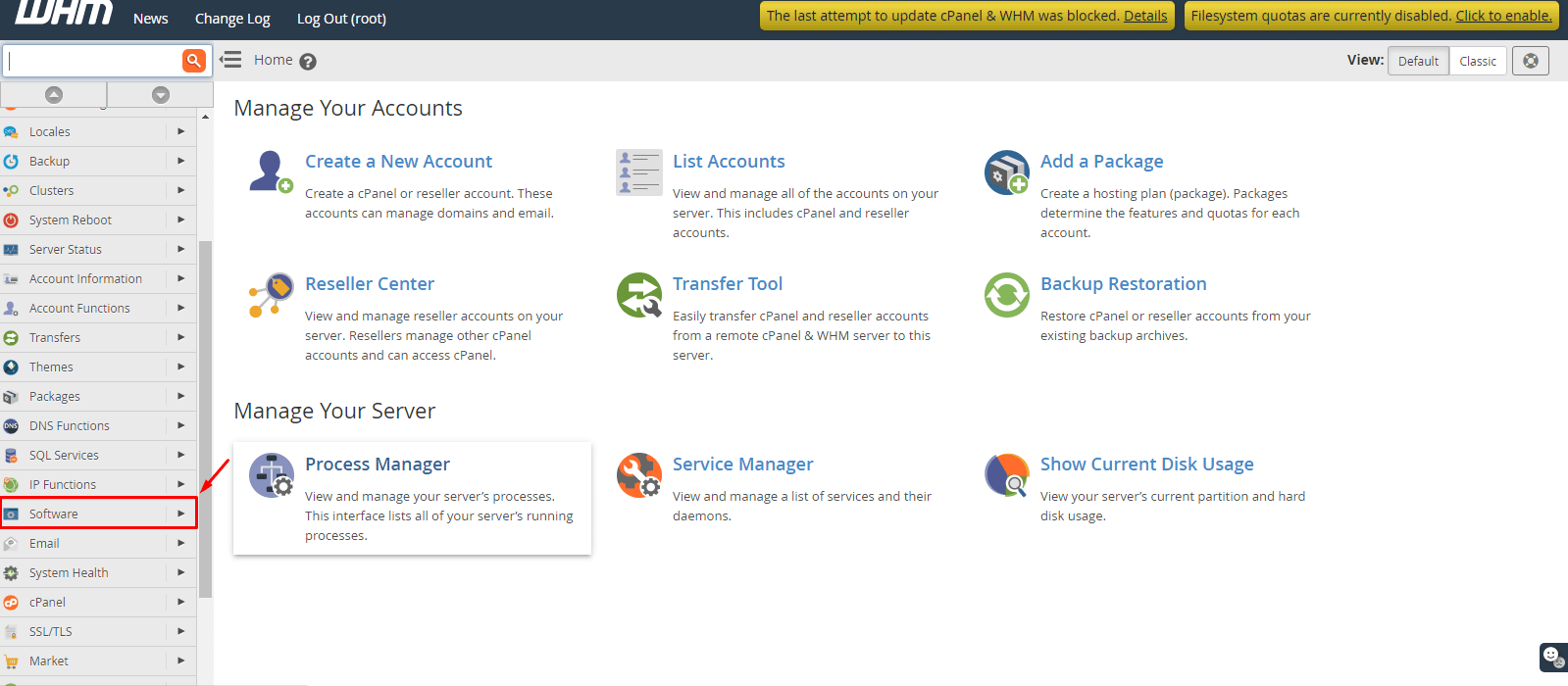
3. Click on Module Installers.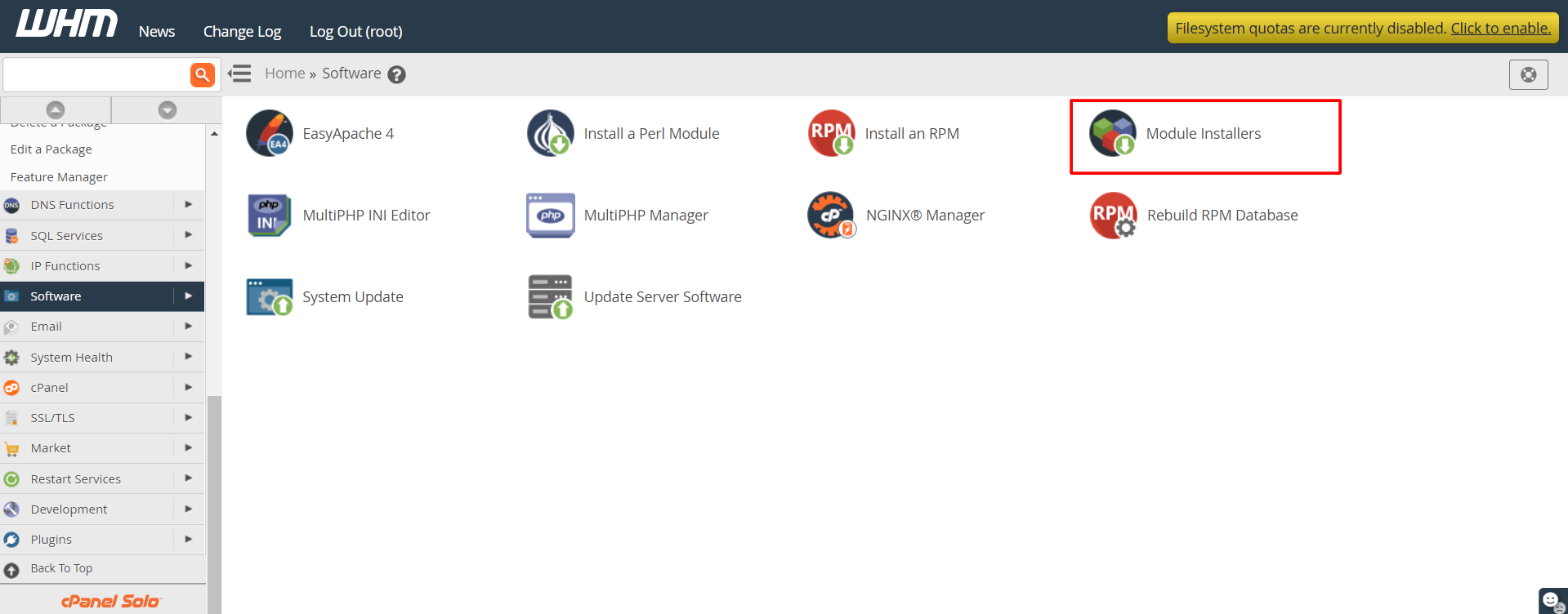
4. Click Manage for PHP Pecl.
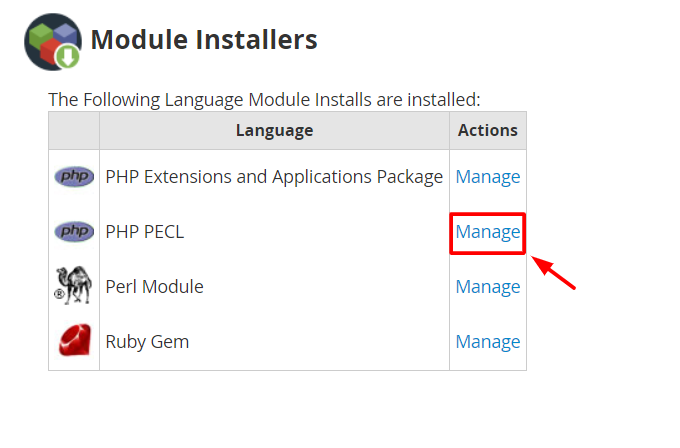
The PHP Pecl Installer section will open.
Do you see the Find a “PHP PECL” section? Good!
5. Type “redis” in the Search box and click Go.
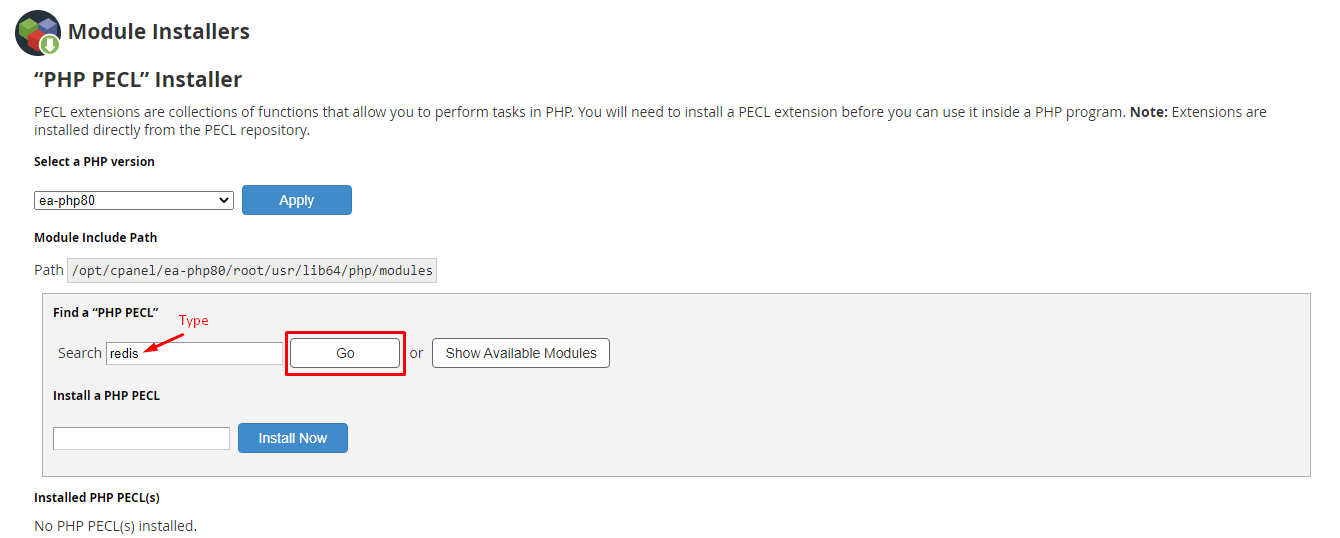
6. The search will return the appropriate PHP Redis module. Click Install.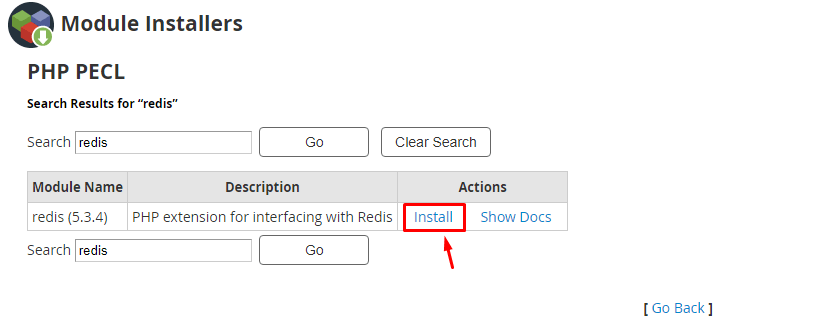
It will install the PHP extension that will act as an interface for Redis.
7. Finally, run these commands in the SSH:
# service httpd restart # service redis restart
It will restart Redis and httpd for the changes to take effect.
With it, the installation of Redis and PHP Redis on your cPanel server will be complete.




